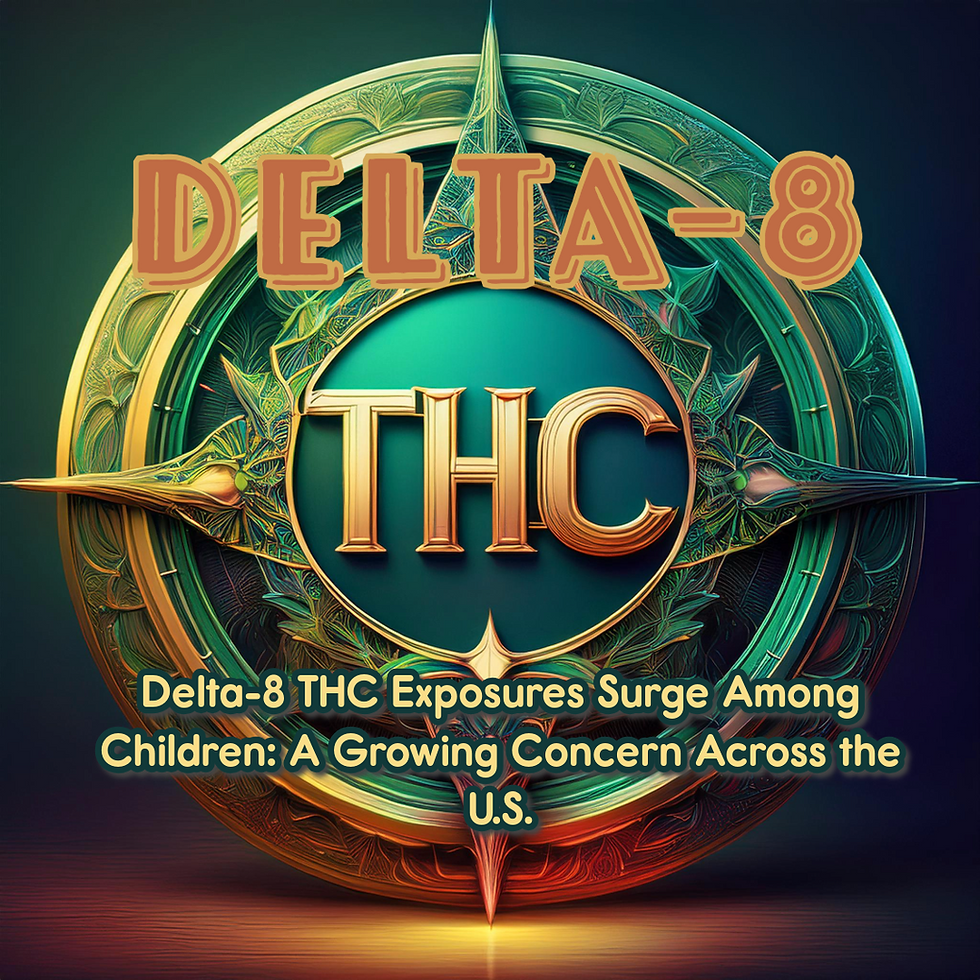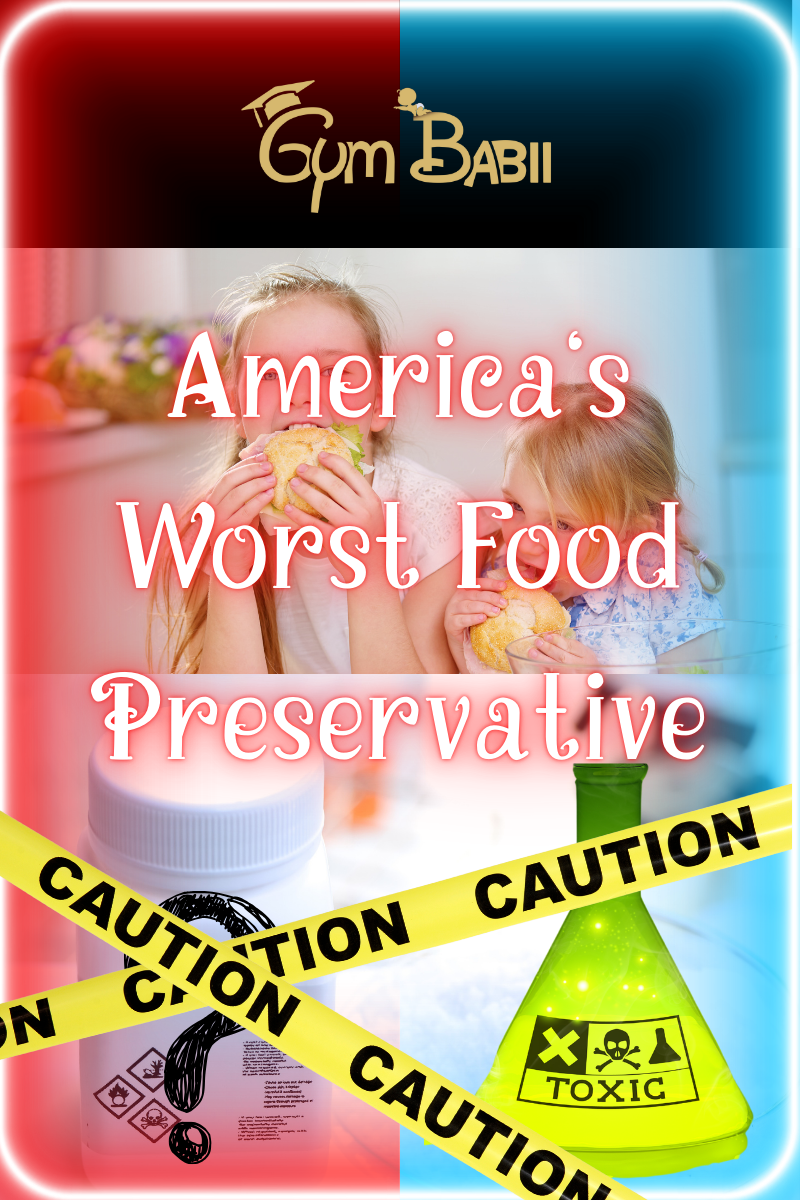The Rising Danger: Delta-8 THC Exposures in Children and What Parents Need to Know
- Gym Babii Writing Team

- Sep 27, 2024
- 3 min read
Updated: Apr 7, 2025

Hey Growers & Learners,
For all our amazing parents out there, Gym Babii is back to help raise awareness about an issue that’s becoming more and more concerning in this blog article titled, The Rising Danger: Delta-8 THC Exposures in Children and What Parents Need to Know. You might think your family is protected from harmful substances, but recent studies are proving otherwise. With products like delta-8 THC creeping into households, we want to help you stay ahead of the curve and protect your little ones.
"An ounce of prevention is worth a pound of cure." – Benjamin Franklin
Recent research from the Center for Injury Research and Policy and the Abigail Wexner Research Institute at Nationwide Children’s Hospital shows that from January 2021 to December 2022, there was an alarming 80% spike in calls to poison control centers about delta-8 THC exposures. Most of these cases were happening down South, and the numbers are continuing to climb, especially in areas where delta-9 THC (commonly known as marijuana) is illegal.
What’s Delta-8 THC?
Delta-8 THC is a close cousin to the more well-known delta-9 THC, which is responsible for the "high" in marijuana. While delta-8 might be marketed as a "lighter" option, make no mistake—it still has powerful effects. It’s often derived from CBD and sold in products like gummies, brownies, and candies, which is where the danger for kids comes in. These treats can look tempting, especially when they’re left out in the open.
A Legal Loophole?
In states where delta-9 THC is illegal, delta-8 has found its way through a legal loophole. It’s often unregulated, which means it can be sold widely, creating a hidden hazard in homes. Dr. Christopher Gaw, an emergency pediatrician, notes that many families unknowingly bring delta-8 into their homes, thinking it's safer. But unregulated products can carry just as much risk—especially for children.
How Delta-8 THC Affects Kids
Parents, imagine your little one seeing a colorful gummy or brownie on the counter. They’re not going to think twice before grabbing it, right? That’s exactly the problem. Kids can easily mistake delta-8 products for snacks.
According to Dr. Antonia Nemanich, a toxicologist, "Kids don’t realize these aren’t safe to eat, and once they’ve consumed a delta-8 edible, the effects can hit hard and fast." Symptoms range from confusion and sedation to vomiting and hallucinations. A single edible can cause serious harm, particularly to young children.
No FDA Regulation
Unlike medications, delta-8 THC products aren’t regulated by the FDA, meaning there’s no guarantee of safety. This includes potential contamination with heavy metals or other harmful chemicals. A study found that 66% of people who ate delta-8 edibles reported adverse effects like hallucinations and anxiety. As Dr. Hannah Hays points out, "Delta-8 and delta-9 affect the brain similarly, so the risks are much the same."
Keeping Your Kids Safe
We know parenting comes with a million responsibilities, and safety is always at the top of the list. Here are some simple tips to keep delta-8 out of the reach of curious little hands:
Store any delta-8 products in locked containers, away from kids and pets.
Don’t keep these products with food items. The confusion could lead to accidental consumption.
Always have open conversations with family and caregivers about safe storage.
If you ever suspect your child has ingested a delta-8 product, seek medical help immediately. Don’t wait for symptoms to worsen—early intervention is key.
The Legal Landscape
Let’s break down the current legal status of delta-8 THC. The legality of delta-8 THC varies by state, and understanding this can help parents know what to expect:
In states like California, Colorado, New York, and Michigan, both delta-8 and delta-9 THC are legal, meaning products might be more accessible.
In states like Idaho, Iowa, and Kansas, both forms of THC are illegal.
Many states are still in legal limbo with delta-8, so it’s important to stay informed and check local regulations to know where your state stands.
Conclusion: Time for Action
Gym Babii wants to remind all our parents that staying informed and taking proactive steps is the best way to protect your family. Delta-8 might seem harmless at first glance, but its growing presence in homes and lack of regulation presents a significant risk, especially for our little ones. Whether you live in a state where THC is legal or not, the best defense is knowledge and prevention. Let’s work together to keep our homes safe, healthy, and stress-free.
Remember: Stay vigilant, keep growing & learning!
Best regards,
The Gym Babii Team





Comments